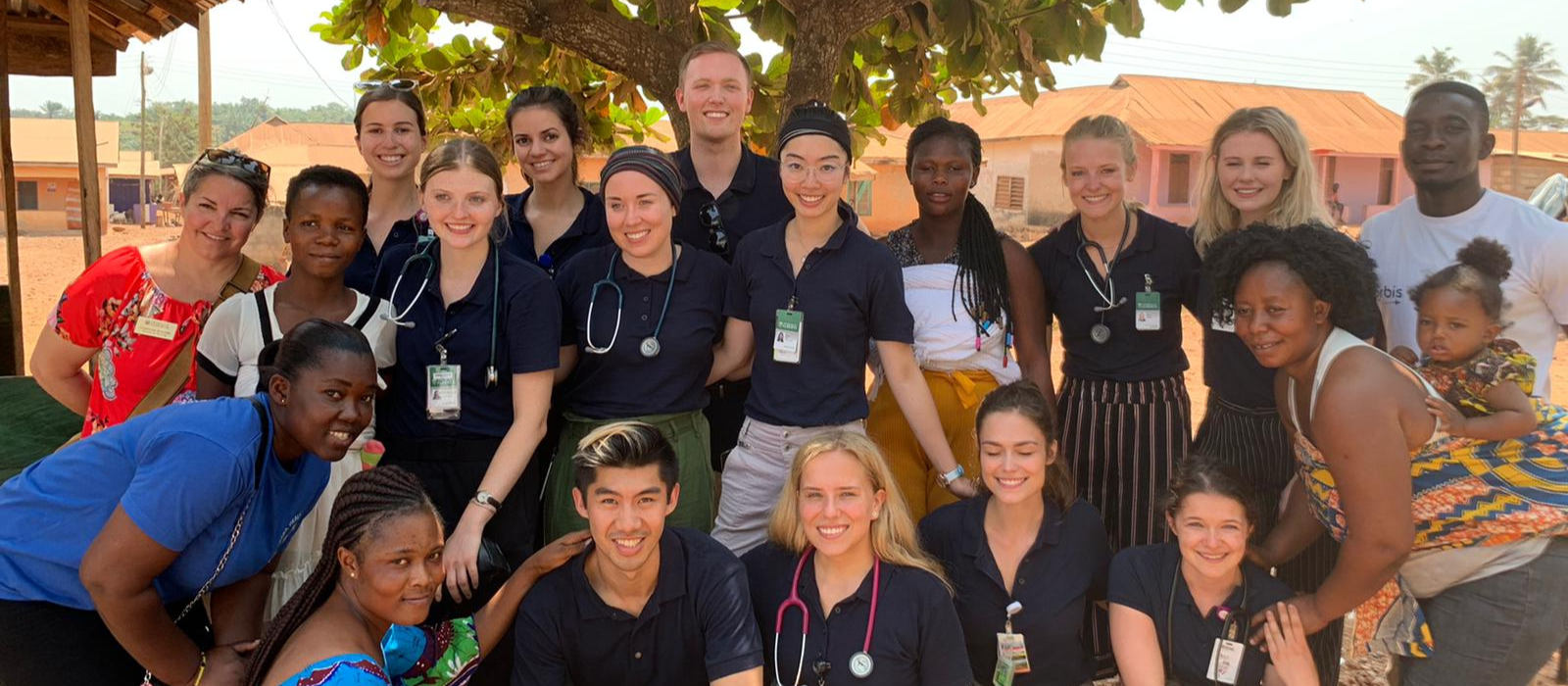Thanks to funding provided by Community Foundations of Canada (CFC), QES 2024 is supporting projects that focus on health, education, social and economic development, while enhancing academic diplomacy. Promoting diversity and inclusion, these initiatives seek to empower young leaders to make a greater impact on local and global communities.
Note: The projects below are posted in the working language of each initiative.
Project title: Building Global Leaders: Community-Based Experiences to Advance Decolonization and Cross-Cultural Education
Summary: The project will engage thirdand fourth-year undergraduate students in global experiences centered on global decolonial and cross-cultural education. Participating scholars will engage in either study, research, or complete an internship in combination with community engagement activities in Canada and in the destination country. Partners will co-design and facilitate the experiences with Algoma University, ensuring community engagement with an emphasis on working with Indigenous and other marginalized communities. Partners will include universities and community organizations in multiple countries, resulting in a multitude of experiences in which students apply global learning to enhance the local community. Participating scholars will earn academic credit and a Global Leadership Certificate from Algoma University, develop a global network of like-minded peers, and contribute to community development projects that are local in scope and focused on decolonization in practice.
Project title: Developing Leaders and Community Through Sport
Summary: Mount Royal University (MRU) focuses on ensuring all students, faculty, and staff belong and encourages academic programs to focus on inclusivity, academic and personal success, leadership, and creating strong, healthy communities. Partnering with Commonwealth Sport Canada (CSC), the project creates the opportunity to use sport to develop strong leaders and make global impacts. Through a unique, three-way partnership; MRU, CSC, and the in-country hosts, which include sport programs in Commonwealth countries (for example, Botswana Olympic Committee, and others in Rwanda, Trinidad and Tobago, etc.), scholars will be provided with leadership development opportunities which focus on health, education and social and economic development.
Project title: Water for Life: Building Resilience in Dispersed and Reserved Communities in Northern Colombia
Summary: This project will address the critical issue of water scarcity and inadequate sewage treatment faced by over 3.2 million Afro-Colombian residents of northern Colombia. By leveraging adaptation strategies, fostering community engagement, and promoting sustainable water management practices, we seek to enhance resilience in the face of climate change and future uncertainties. In collaboration with partners from the University of Cartagena, the project’s long-term objective is to establish water security and resilience in reserves and dispersed communities of northern Colombia. This will be achieved by ensuring access to safe drinking water and sewage treatment facilities tailored for small and dispersed communities. Additionally, this initiative will tackle the lack of representation from northern Colombia by promoting inclusivity and providing opportunities for graduate education, while addressing challenges related to clean water accessibility and digital connectivity, where only 4% of graduate students come from northern Colombia, an underserved minority community.
Project title: Knowledge That Moves: Travelling Knowledges II
Summary: Travelling Knowledges II (KTM) focuses on transformative experiences rooted in the following principles: sustainable development, cross-cultural and ecological understanding, respect for Indigenous and traditional knowledge, and experiential and praxis-based education. These principles are enacted through north-south exchange between global partners and UNBC. Global partners include existing research partners of UNBC Global Studies faculty, the Taa Marbouta Language Centre in Tunis (Tunisia), and UNBC’s existing exchange partners in QES-eligible countries. KTM involves two distinct components. First, it will fund international individual study and internships for 12 undergraduate and 12 graduate students (6 per year). Second, KTM will fund 4 incoming graduate students (1 per year) in the Global Studies Master’s program, which focuses on global development, global environment, and the interaction between them. Fostering and developing cross-cultural understanding, KTM will contribute to developing a new network of student leaders within and beyond Canada.
Project title: Integrating Multidisciplinary, Community-Based, Innovative Research & Training for Improved Sustainable Livelihoods in a Farming Region of Kenya
Summary: The project will contribute to shaping students into networked global citizens and leaders and provide research, training and resources to enhance agricultural/nutritional sustainability in a rural Kenyan region. Partners include a Canadian charity and Kenyan community organizations, schools, and universities. The QEScholars will work together to conduct five integrated, community-based, collaborative applied research projects on: strategic pesticide use in the face of climate change; benefits of a combined nutrition and gardening curriculum taught to 4-H club members at partner schools; breast-feeding and nutritional practices among mothers who have and have not received Infant and Young Child Feeding training; and epidemiology of a) East Coast Fever and b) zero-grazing in cattle on smallholder dairy farms. Expected results include: 12 Canadian and 4 Kenyan global citizens and leaders; enhanced school/community nutrition and agricultural management/sustainability of a rural Kenyan region; and strengthened training and research capacity of two Kenyan universities and UPEI.
Project title: Academic Diplomacy in Practice
Summary: The project will provide work and learning opportunities for University of Victoria (UVic) students with established partner organizations in Thailand and Malaysia. QEScholars will contribute to education and leadership training programs, community health initiatives, and social and economic development projects with refugee youth at the Karenni Social Development Centre and Malaysia Social Research Institute, and with Indigenous communities in Borneo, with Pacos Trust. Twenty-five Canadian undergraduate students from UVic will cross academic, cultural and geographic borders and work with diverse communities to complete 5-6-month internships developing the skills and knowledge necessary to becoming more competent, confident, and compassionate leaders and global citizens. In terms of expected outcomes, QEScholars will 1) increase knowledge, skills and critical thinking; 2) enhance cross-cultural understanding and transnational networks; and 3) Increase contribution to local and global communities working alongside established partners on activities that contribute to strengthening individuals and communities with benefits that extend beyond academic borders.
